In most of America, the days of sandlot, playground, pickup sports are long gone, replaced by a culture of practices, games and travel. Kids are chauffeured and chaperoned by parents fearful of leaving their children unsupervised. Practice time is rigidly scheduled, with teams participating in ever more games and tournaments. The loss of free play has cost kids opportunities to exercise creativity, set and achieve goals, learn interpersonal skills and develop a love of physical activity for its own sake. Let kids play on their own terms, and they will.
From Sport for All, Play for Life:
The 1970s are long gone. Today, many parents are reluctant to let children ride bikes across town to play games with friends. Fear of child abductions, while extremely rare, is a psychological barrier, and crime and traffic concerns are real issues in some neighborhoods. Families are smaller, so there are often fewer siblings to play with at home. But experts recognize the need to reintroduce free play where possible, given the science. Unstructured play in childhood is associated with higher levels of academic creativity among college students, according to a 2014 University of Texas study (Bowers et al., Creativity Research Journal, 2014). Children who spend more time in less structured activities in general are better able to set their own goals and take action on them, researchers at the University of Colorado found (Barker, Frontiers in Psychology, 2014). The case is lining up for adults to get out of the way more often — and let the game, and child peers, be the teacher.
Four social barriers to informal play
As recognized by the American Academy of Pediatrics.
(Data: Ginsburg, Pediatrics, 2007)
IDEAS
“(Kid's don't) have to be in an organized league. They don't have to travel around the country.”
Clayton Kershaw, Los Angeles Dodgers
RESOURCES
5 Ways to Help Your child become physically literate
Learn more in this one-pager created for Project Play by the U.S. Olympic and Paralympic Committee.
SUMMIT SESSIONS
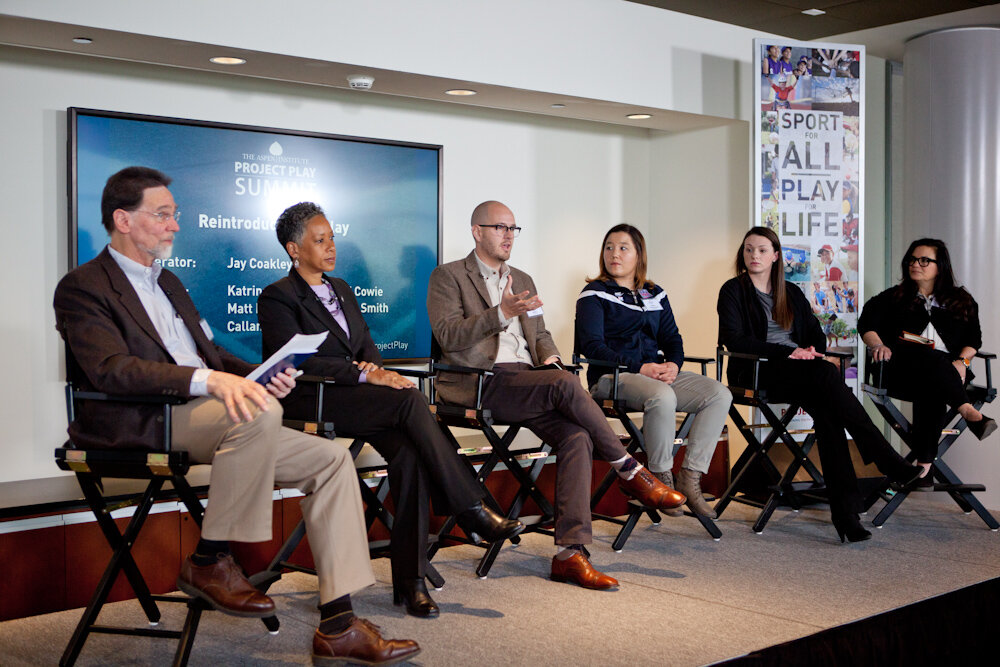
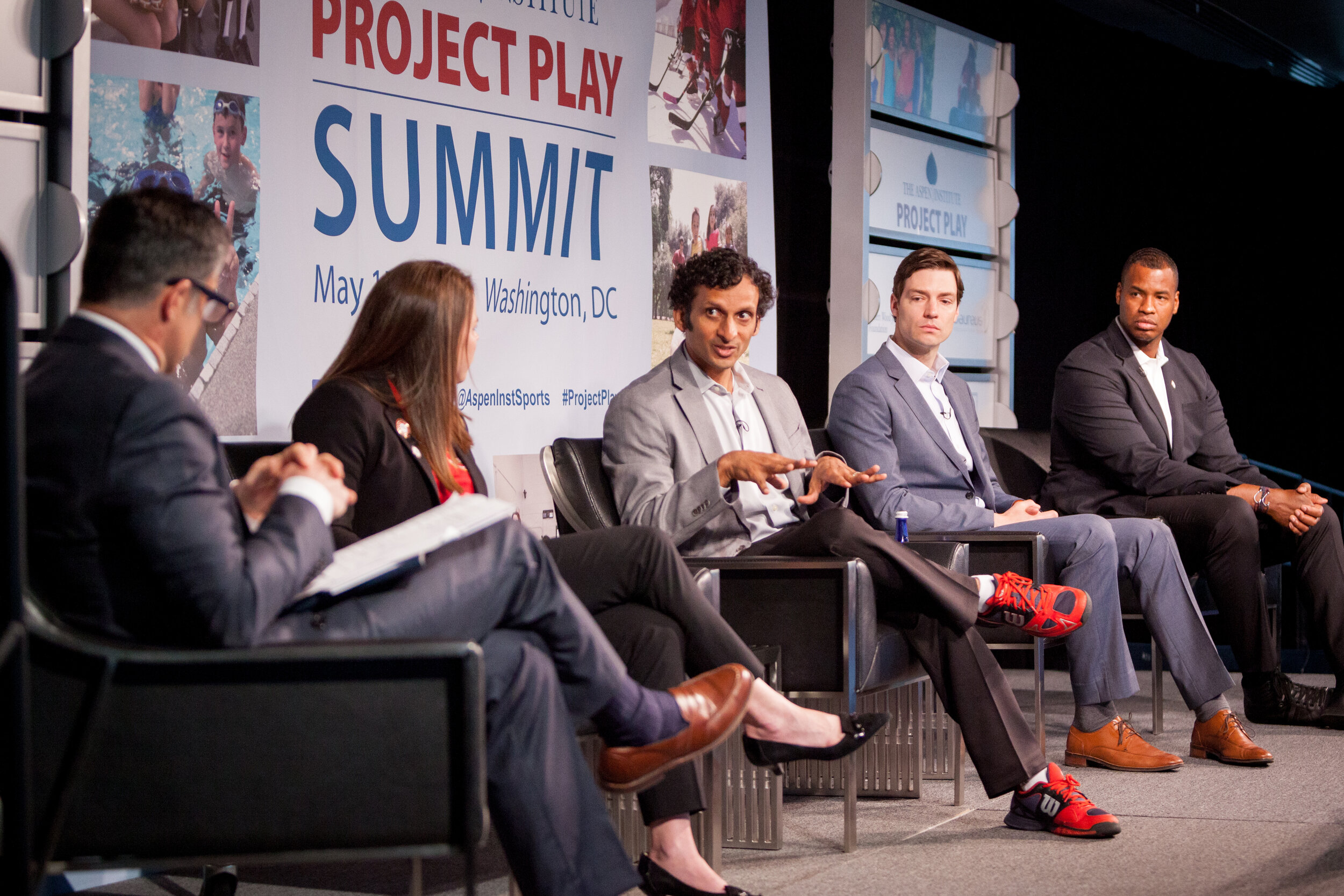
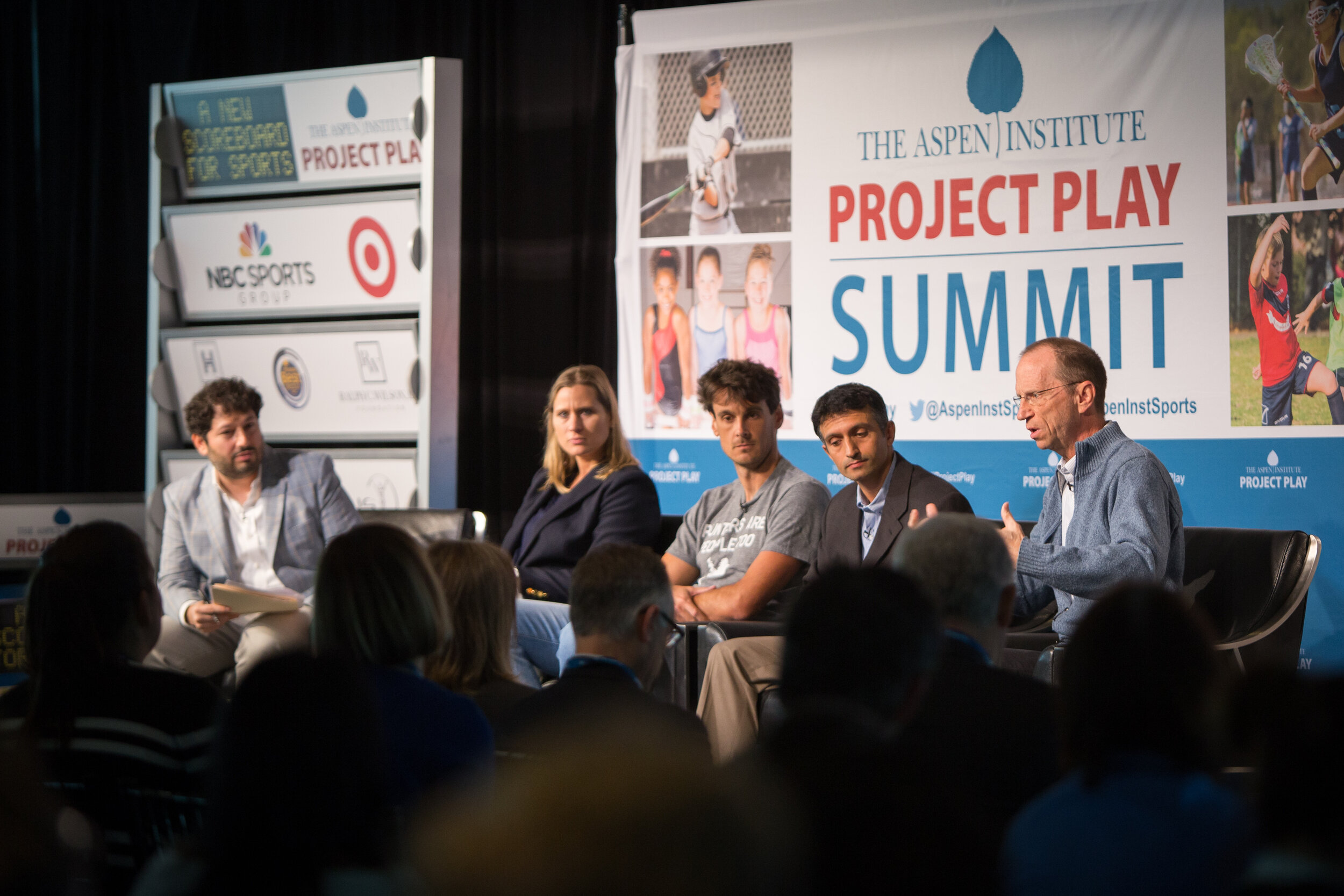
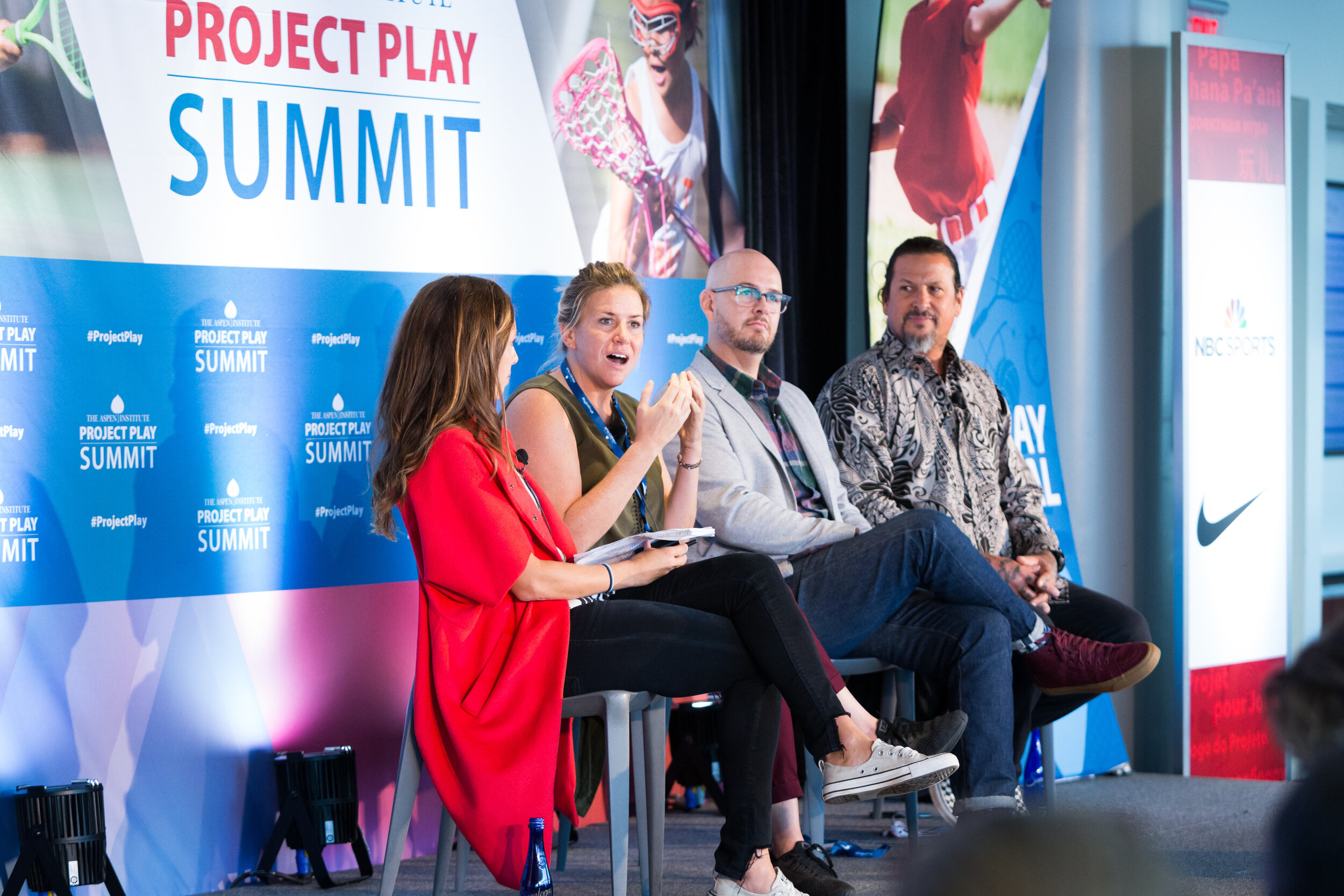
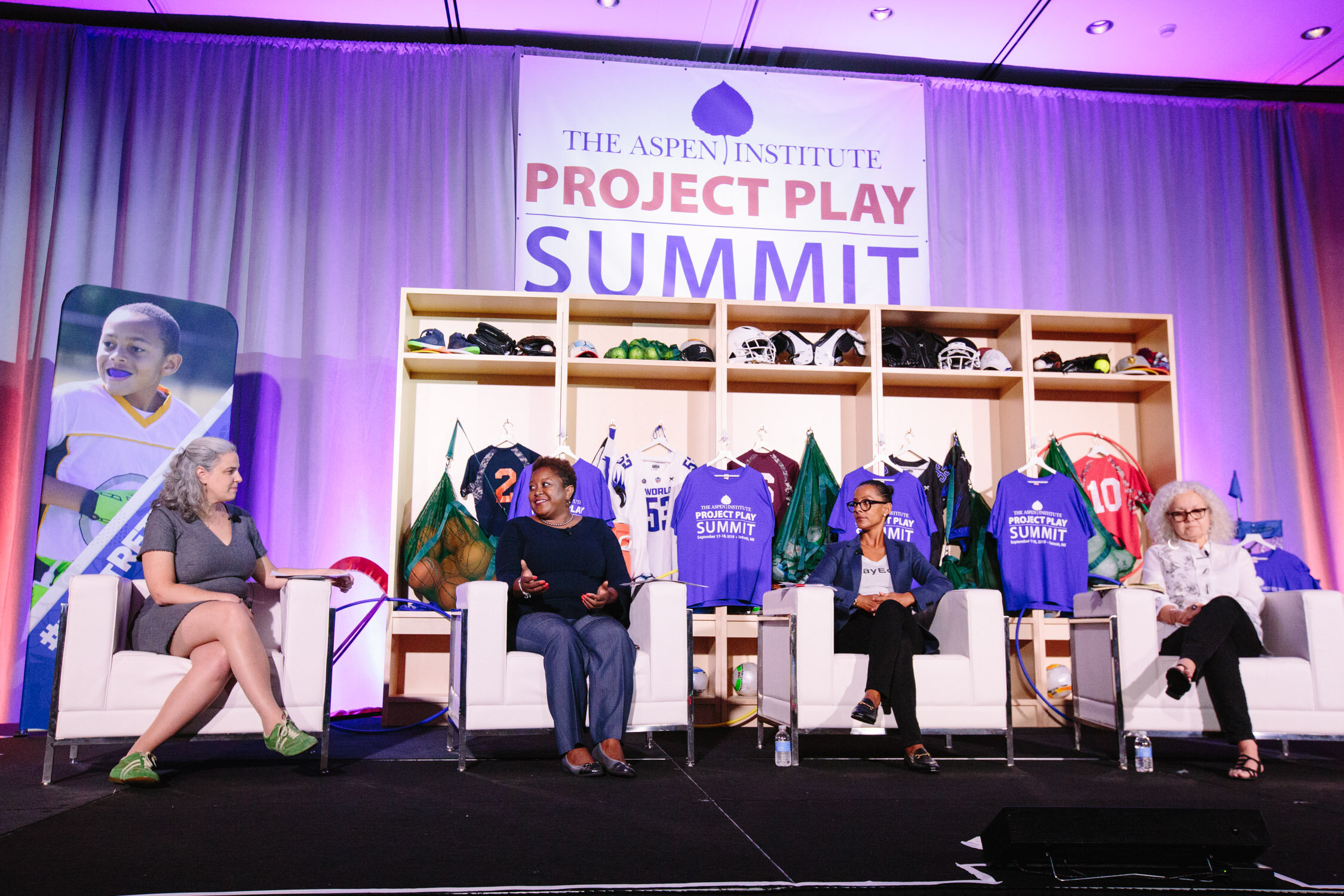
“I would take a crayon and draw a line on the wall, then take my dad's tube socks and roll them up and start shooting on the wall. I'd be dunking on the wall. And my mom would see it and absolutely just lose her mind. This is the type of things kids used to do, or at least I used to do, anyway.”
Kobe Bryant, NBA legend
FINDING SUCCESS
While many community soccer programs ignore U.S. Soccer’s best practices document — or don’t even know it exists — the Portland City United Soccer Club is on board. Once a week, the organization rents a small indoor court designed for futsal, a fast-paced game popularized in Brazil, and invites kids to play for free. The director restricts parents to the restaurant and elevated viewing area, explaining: “We are trying to set up an avenue for the kids to play some street soccer where they can explore the game and play on their terms.”
For more ideas, read about the commitments made by Project Play Champion organizations here.

